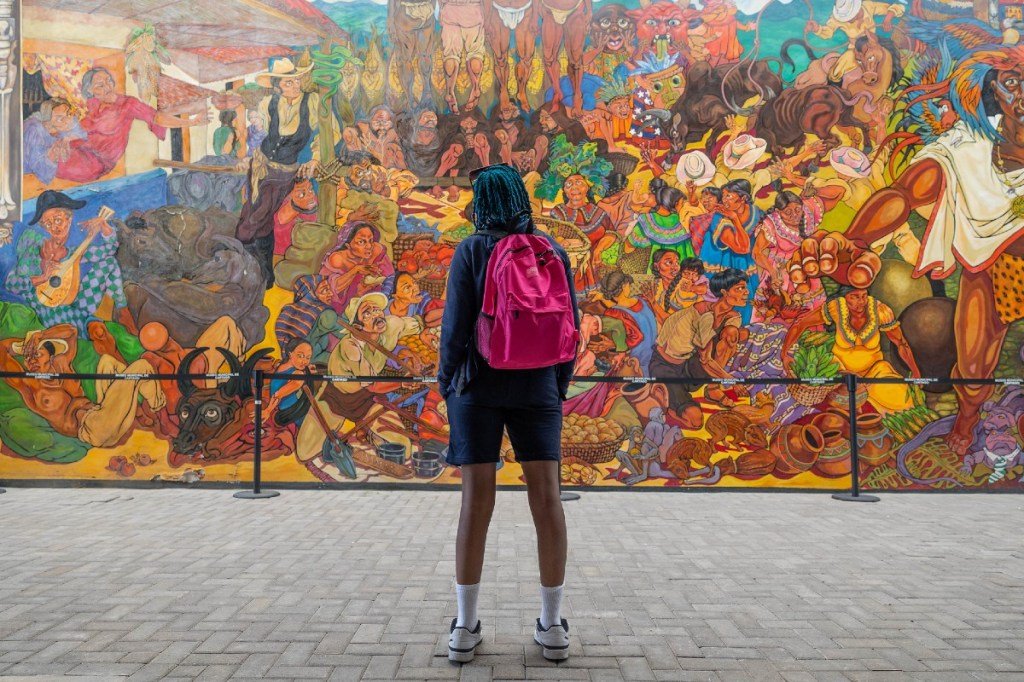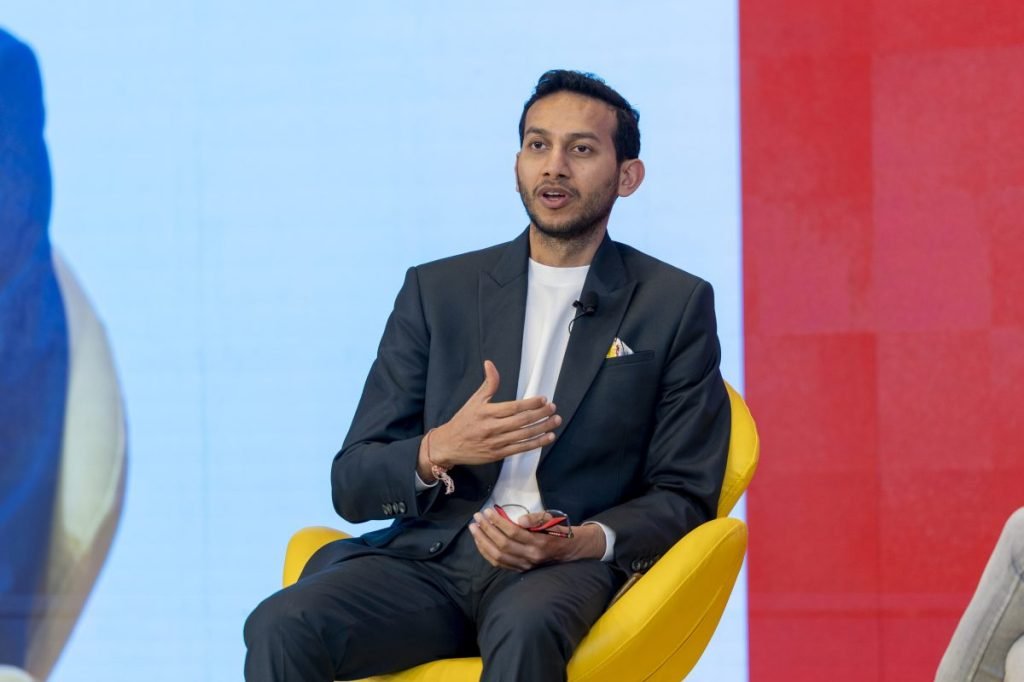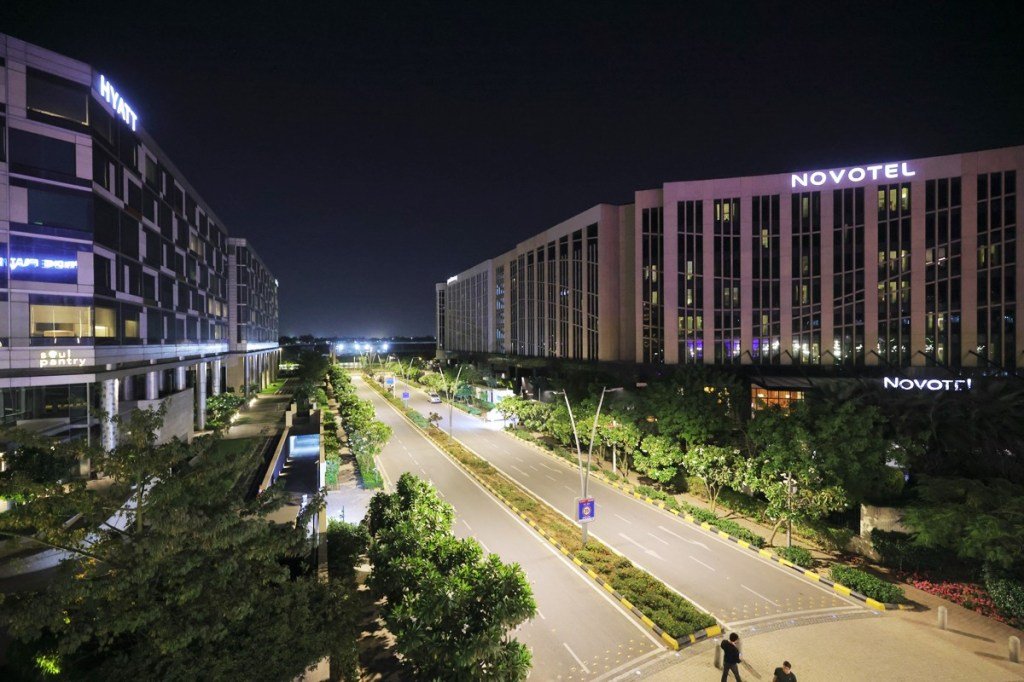Travel Market Insights
Firethorn breaks ground on Sackville Place hotel in Dublin

Ireland: Real estate developer Firethorn has begun construction on the 138-bedroom Sackville Place hotel in central Dublin, set to be operated under The Gofer management arm of SW3 Capital.
Located just off O’Connell Street in Dublin, Sackville Place marks Firethorn’s first development outside the UK and its debut in the tourism sector.
Stewart Construction will deliver the seven-storey hotel, which will feature a range of room types including double, triple, and quadruple bunk dormitories, as well as private doubles.
Communal spaces including a bar, café, and lounge will span the ground floor and basement.
Paul Martin, director and head of development at Firethorn said: “This is a significant milestone for us. Sackville Place is not only our first tourism asset but also our first Irish project. With Stewart Construction onboard and work now underway, we’re excited to bring this new concept to life in the heart of Dublin.”
Firethorn acquired the site in partnership with SW3 Capital.
Tom O’Mahony, co-founder of SW3 Capital, said: “This milestone is a testament to the hard work and dedication of our entire team. We’re thrilled to move into the next phase as we prepare to open and operate under our hospitality brand, The Gofer.
“Our goal is to redefine the guest experience in Dublin by combining exceptional facilities at Sackville Place with authentic, locally-rooted experiences. We’re excited to offer guests a true taste of Dublin – vibrant, welcoming, and unforgettable.”
Stewart Construction managing director Paul Stewart said: “We’re pleased to partner with Firethorn for their first Irish project. Our team understands the demands of the hospitality sector, and we’re committed to delivering this scheme to the highest standards.”
Practical completion of the hotel is expected in March 2027.
Highlights:
• Firethorn has broken ground on its first Irish project, the Sackville Place hotel in central Dublin.
• The 138-room hotel will feature communal spaces including a bar, café, and lounge.
• When complete, it will be operated by SW3 Capital’s management arm The Gofer.
• Practical completion is scheduled for March 2027.
Travel Market Insights
10,000 Students, One Mission: Building Empathy Through Travel

This sponsored content was created in collaboration with a Skift partner.
It starts with a bus pulling into a rural village in the mountains of the Dominican Republic. Dozens of families are already gathered, waiting eagerly to meet the visiting high school students they’ve been paired with. For one day, students live as locals — fetching water, cooking meals, playing with children — forming bonds that transcend language and culture. It’s these deeply human moments, crafted through trust and long-term community relationships, that define the Global Glimpse experience.
Since 2008, the non-profit has empowered high school students from diverse backgrounds to explore new cultures, challenge their assumptions, and build lasting connections that transcend borders. Over time, the impact has been clear. Ninety-six percent of alumni say they can better empathize with people from different cultural backgrounds after participating in the program.
Now, as Global Glimpse prepares to welcome its 10,000th student, SkiftX sat down with founding CEO Eliza Pesuit to explore the organization’s origins, its community-driven approach, and what’s next, including a bold vision for expanding into custom, purpose-driven trips for adults and professionals.
SkiftX: Why do you believe travel is such a powerful form of education?
Eliza Pesuit: It’s deeply personal for me. I didn’t travel growing up, but thanks to my Serbian dad and Russian mom, I had an international upbringing. After my freshman year in college, I got a job cleaning tents in Yosemite National Park and met people from all over the world. That summer changed everything. I ended up buying a one-way ticket to Peru and spent six months traveling solo through South America.
What struck me most was how aware I became of global inequality and privilege. I remember watching a young girl with a baby on her back and thinking, “What am I going to do with all the opportunity I’ve been given?” I was also keenly aware of how few Americans I met abroad. We have this outsized global influence, and yet so many of our leaders grow up without a real understanding of the world. That experience showed me that travel is the most powerful form of education. I can’t tell you what I learned in any year of high school, but I remember every moment of that journey.
How did Global Glimpse come to be?
After I graduated from college, I returned to Nicaragua, where I had studied abroad. I was planning on going to nursing school, but life had other plans when I came across a job posting at a café seeking a bilingual leader to bridge U.S. and Latin American cultures and work with young people. I took the leap.
At 23, I stepped into a role that allowed me to help build and lead international programs from the ground up, with support from early mentors who believed in the vision. We launched Global Glimpse in partnership with 10 low-income high schools in the San Francisco Bay Area and sent nearly 100 students to Nicaragua in the first year. In those early years, Global Glimpse was a small and scrappy operation, and I did everything, including recruiting schools and leading delegations. In 2012, I began to professionalize the organization and grow our footprint. That’s when we really started to scale our model and expand our impact.
What does reaching the 10,000th student milestone mean to you?
It’s surreal. I think when you build something from nothing, you see every step of the journey. There’s been struggle, there’s been growth, but at the center of it all are the young people. They’re out in the world doing amazing things because of this experience. The ripple effect is massive — not just for them, but for their families, schools, and communities. It gives me hope.
What makes the Global Glimpse model unique?
We provide so much more than travel. We have a grassroots network of champions across 100 public high schools and youth development organizations that help ensure access for students who wouldn’t otherwise have this opportunity. And we wrap our trips with a robust pre- and post-travel curriculum. A lot of teen travel programs are one-off experiences. What we do is create a longitudinal impact.
Our students develop soft skills like empathy, agency, adaptability, and collaboration. They unplug for two weeks, are present with each other, and build friendships with people they might never meet otherwise. In New York, for instance, we have students from the South Bronx traveling alongside students from Greenwich, Connecticut. That kind of diversity is rare and powerful.
What are some of the experiences that stay with students the most?
One of the most transformative is our “Living Like a Local” day. Students spend time with a family in a rural community doing what they do — sweeping the patio, feeding animals, and connecting over a meal. Even without speaking the same language, the human connection is profound. These families have often welcomed hundreds of students over the years. The love and trust that exists in those moments is incredible.
It’s not just eye-opening — it’s grounding. Students come away humbled, inspired, and changed.
You’ve started exploring custom trips for adults. What’s driving that expansion?
Adults need this just as much as young people do. They’re burnt out, overstimulated, and craving connection and purpose. We ran our first custom Global Glimpse Journey for Somos, United Airlines’ business resource group for Latino employees, and the feedback was incredible. One hundred percent of participants gave it a top score. People said it was the most powerful travel experience they’d had in years.
I’ve seen this work firsthand during leadership trips we run for donors and partners. Even in just two days, the impact is real. There’s a real opportunity to rethink how we approach professional retreats and team offsites. We want to bring that magic to more companies and adults.
What do corporate partners get out of supporting your mission?
They get a lot. It’s direct impact, but also deep employee engagement. Our programs inspire people across the org chart — from airport staff to C-suite executives. We offer tangible ways to get involved, from reviewing student applications to career mentoring. For companies in travel and hospitality, our work aligns perfectly with their brand purpose.
And there’s the storytelling piece. Supporting our work isn’t just writing a check — it’s an authentic, strategic investment in the future of travel.
How can others get involved or help close the empathy gap?
There are so many ways. Fund a student’s first flight. Volunteer to mentor. Sponsor a trip. We also recently launched a Board of Champions made up of cross-sector leaders who want to open doors, offer insights, or simply help amplify our message. It doesn’t take much time to make a big impact. We’re building a movement, and we welcome people to be part of it.
What excites you most about the road ahead?
I’m excited about innovating. Challenging moments force you to think differently. I want to bring the Global Glimpse experience to broader audiences and show the world how powerful empathy-driven travel can be. I’m also inspired by our alumni. We now have nearly 10,000 young people who have been through our program. How do we help them lead, give back, and shape the future of travel and society? That’s the next chapter I’m excited to write.
To learn more about impact-driven travel and how your company can join the Global Glimpse movement, click here.
This content was created collaboratively by Global Glimpse and Skift’s branded content studio, SkiftX.
Travel Market Insights
Oyo Buys Airbnb Management Platform MadeComfy for Over $50 Million

Indian hospitality company Oyo has bought Australian short-term rental platform MadeComfy in a deal valued at over $50 million. This marks Oyo’s entry into the Australia and New Zealand market, expanding its already global presence and adding to its growing list of acquisitions.
Last year, Oyo acquired the Motel 6 and Studio 6 hotel brands in U.S. from Blackstone for $525 million in an all-cash deal.
A source confirmed to Skift that the MadeComfy acquisition was made in a cash-and-stock agreement through vacation rental platform – Belvilla by Oyo. The approval came through a extraordinary general meeting of Oyo parent Oravel Stays, which passed the deal unanimously.
About MadeComfy
MadeComfy was started in 2015 by Quirin and Sabrina Schwaighofer, a husband-and-wife team to help landlords rent out their properties on sites like Airbnb, Booking.com, and Stayz. The platform not only lists the properties but also helps with things like price changes, guest check-ins, and even arranging photographers and cleaners to make the listings more appealing.
The company has been operating in Australia and recently expanded into New Zealand. It currently manages more than 1,300 properties and works with nearly 100 real estate agencies.
Oyo plans to keep the MadeComfy brand and retain Quirin and Sabrina Schwaighofer as co-chief executives. The goal is to expand across Australia and New Zealand, and potentially into other countries where Oyo already operates.
MadeComfy’s Financials
This is reportedly the second-largest deal in Australia’s short-term rental tech sector. The biggest was when HomeAway bought Stayz for $220 million in 2013. It also beats Next Capital’s $48.2 million purchase of Alloggio in 2023.
MadeComfy had raised around $20 million from investors over the years. These included Commencer Capital and BridgeLane. The company nearly collapsed during the pandemic when travel halted overnight, but it managed to survive and bounce back.
In 2023, a $10 million fundining helped MadeComfy with a tech and analytics upgrade, and supported its expansion to New Zealand.
“Over the past decade, we’ve built MadeComfy into a platform that truly understands the dynamics of short-term rentals in Australia and New Zealand,” Quirin Schwaighofer, co-founder and co-CEO of MadeComfy, said in a release.
“Joining forces with Oyo gives us the global scale and technology muscle to take that vision further, faster.”
Australian law firm Maddocks advised MadeComfy on the deal. “This was a complex, cross-border transaction, and we were proud to see a successful outcome achieved,” said Rahil Patel, corporate partner of Maddocks.
As the travel industry recovers and grows, companies like Oyo are betting that well-run, tech-enabled platforms like MadeComfy will play a big role in the future of short-term stays.
The travel industry’s top event returns this fall.
September 16-18, 2025 – NEW YORK CITY
Travel Market Insights
How Hotel Companies in India are Expanding Through Multi-Property Deals

Hotel chains in India are increasingly moving away from signing individual properties in favor of multi-property development agreements. This shift comes as the country’s hospitality industry experiences rapid growth driven by rising demand.
The Indian hotel sector is expected to cross INR 1 trillion ($11.7 billion) by the end of the current financial year and reach INR 1.1 trillion ($13 billion) by 2026-27, according to risk management and monitoring platform Rubix Data Sciences.
Occupancy rates are also increasing, projected to reach 73% by 2026-27, up from 68% in fiscal 2024 and significantly higher than the pandemic low of 35%. This is largely due to demand consistently outstripping supply.
This demand-supply imbalance is a critical factor driving long-term strategies across the sector.
Hyatt Hotels CEO Mark Hoplamazian noted that limited supply growth relative to demand is a global trend, including in India. “This is a positive attribute,” he said.
Accor chairman and CEO Sébastien Bazin called India “an untapped market.” He said there are less than 200,000 brand
-

 Brand Stories2 weeks ago
Brand Stories2 weeks agoBloom Hotels: A Modern Vision of Hospitality Redefining Travel
-

 Brand Stories1 week ago
Brand Stories1 week agoCheQin.ai sets a new standard for hotel booking with its AI capabilities: empowering travellers to bargain, choose the best, and book with clarity.
-

 Destinations & Things To Do2 weeks ago
Destinations & Things To Do2 weeks agoUntouched Destinations: Stunning Hidden Gems You Must Visit
-

 Destinations & Things To Do1 week ago
Destinations & Things To Do1 week agoThis Hidden Beach in India Glows at Night-But Only in One Secret Season
-

 AI in Travel2 weeks ago
AI in Travel2 weeks agoAI Travel Revolution: Must-Have Guide to the Best Experience
-

 Brand Stories1 month ago
Brand Stories1 month agoVoice AI Startup ElevenLabs Plans to Add Hubs Around the World
-

 Brand Stories3 weeks ago
Brand Stories3 weeks agoHow Elon Musk’s rogue Grok chatbot became a cautionary AI tale
-

 Asia Travel Pulse1 month ago
Asia Travel Pulse1 month agoLooking For Adventure In Asia? Here Are 7 Epic Destinations You Need To Experience At Least Once – Zee News
-

 AI in Travel1 month ago
AI in Travel1 month ago‘Will AI take my job?’ A trip to a Beijing fortune-telling bar to see what lies ahead | China
-

 Brand Stories2 weeks ago
Brand Stories2 weeks agoContactless Hospitality: Why Remote Management Technology Is Key to Seamless Guest Experiences



You must be logged in to post a comment Login